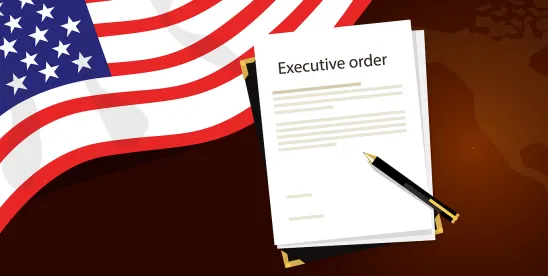Executive Order (EO) 14173 “Ending Illegal Discrimination and Restoring Merit-Based Opportunity” creates new obligations that could carry significant risks for any organization doing business with the United States federal government. Federal contractors, subcontractors and recipients of federal grant money are or will soon be subject to potential liability under the False Claims Act (FCA).
Quick Hits
- EO 14173 is raising potential compliance concerns for organizations during business with the federal government under the FCA, subject to civil and criminal penalties.
- Organizations doing business with the federal government now have obligations to certify that they do not operate any programs promoting diversity, equity and inclusion that violate any applicable Federal anti-discrimination laws..
- These same organizations also must agree that their compliance with all federal nondiscrimination laws in any federal contract, subcontract, or grant recipient and makes that certification a “material” term for purposes of the FCA.
- Organizations doing business with the federal government may want to consider steps to take to minimize compliance risks under the FCA, which can open the door to civil and criminal exposure.
EO 14173, which was signed on January 21, 2025, and other executive actions have raised questions for employers doing business with the federal government as to what programs the government may target and whether efforts to maintain compliance with still-existing federal civil rights and antidiscrimination laws could pull them within federal regulators’ crosshairs. Notably, EO 14173 appears to implicate potential civil or criminal liability for private companies and federal contractors under the FCA, one of the government’s primary tools for combating fraud against the federal government.
The FCA imposes liability on individuals or companies that defraud the federal government by making materially false or fraudulent statements to influence the government to pay out. Those statements must be material to the government’s decision to make the payment. It also includes a “qui tam” provision that allows private individuals, known as “relators” or “whistleblowers,” to file lawsuits on behalf of the government and potentially receive a portion of any recovered damages.
The U.S. Department of Justice (DOJ) has said it collected more than $2.9 billion in settlements and judgments in all fraud claims brought under the FCA in the last fiscal year ending on September 30, 2024, with more than $2.4 billion stemming from qui tam suits.
Specifically, EO 14173 states that agency heads must “include in every contract or grant award: A term requiring the contractual counterparty or grant recipient to agree that its compliance in all respects with all applicable Federal anti-discrimination laws is material to the government’s payment decisions for purposes” of the FCA.
That language requires organizations doing business with the government to certify that they do not have any DEI programs that are unlawful under federal antidiscrimination laws and seeks to make such a certification a material term for purposes of the FCA. Of particular concern is that such claims under the FCA could come not only from the government but also from individuals inside and outside of the organization in qui tam suits.
Next Steps
These actions put employers doing business with the federal government on notice that the new administration is empowering interested individuals, such as applicants, employees, and others to join or possibly replace traditional federal employment agencies, such as the Equal Employment Opportunity Commission (EEOC) and the Office of Federal Contract Compliance Programs (OFCCP), as watchdogs on compliance obligations.
Employers may want to review or audit all their existing DEI or Diversity, Equity, Inclusion, and Accessibility (DEIA) programs or initiatives and to determine if they align with lawful practices under applicable federal anti-discrimination laws.
Employers doing business with the federal government may also want to consider options to create active, robust, and ongoing compliance programs to assist with this new obligation and certification under the FCA. Employers may consider thorough analysis protected by the attorney-client privilege as part of these compliance programs.





 />i
/>i


